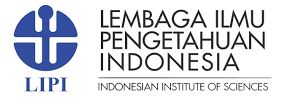Indonesian Political Dynamics in National and Regional Elections
Abstract
The introduction is that illustrates Indonesia as a democracy is facing an exciting new challenge. The democratic party which was originally separated in each region, will now be held simultaneously nationally in 2024. The purpose of this study is first, what are the dynamics of postponing regional head election in 2024 for 271 regions whose terms of office expire in 2022 and 2023 and second, what is the urgency of extending the term of office of the regional head until 2024. The research method used is normative juridical with the approach of legislation and phenomena, theories, concepts and legal principles. The study used is a literature study and analyzed descriptively qualitative with the use of primary data in the form of primary, secondary and tertiary legal materials. related to the extension of the term of office of the regional head until 2024. The results of the analysis obtained on these issues are known that first, the postponement of regional head election from 2022 and 2023 to 2024 will result in a vacancy in the position of regional head in 271 regions. Then, the appointment of acting regional heads who will lead for one to two years to provide uncertainty to democracy in the regions which raises many pros and cons for the policies taken, it is feared that it will harm the principles of regional autonomy. Second, to avoid the filling of acting regional heads in the 271 regions, more effective and democratic steps are needed, so that the acting heads who lead the regions for one to two years are expected not to reap different perceptions in the community.
___
References
Books with an author:
Amalia, L. S. (2021). Dinamika Sosial Politik Pemilu Serentak 2019, Jakarta : LIPI Press.
Jenar, S., et al. (2024). Hukum Pemerintahan Daerah, Banten: PT Sada Kurnia Pustaka.
Nusantara, B. G. (2017). Politik Hukum Penyelenggaraan Pilkada Serentak Tahun 2024 (Potret Perdebatan Partai Politik di Parlemen), Jakarta: Universitas Islam Negeri Syarif Hidayatullah Jakarta.
Journal articles:
Abbas, A. (2021). Konsep Negara Hukum dan Demokrasi dalam Pandangan Abdul Qahhar Mudzakkar. Amsir Law Journal, 3(1), 39-50. https://doi.org/10.36746/alj.v3i1.49
Diamond, A. (2014). Understanding Executive Functions: What Helps or Hinders them and How Executive Functions and Language Development Mutually Support One Another. Perspectives on Language and Literacy, 40(2), 7-11. https://www.proquest.com/docview/1551605899
Fikri, S. (2024). Election Law Enforcement: Fighting Black Campaigns on Social Media. Amsir Law Journal, 5(2), 117-125. https://doi.org/10.36746/alj.v5i2.408
Hutabarat, P. N., Harsasto, P., & Utomo, S. (2015). Pemikiran Politik Mohammad Hatta tentang Demokrasi. Journal of Politic and Government Studies, 4(2), 146-160. https://ejournal3.undip.ac.id/index.php/jpgs/article/view/8213
Kartika Nabela, T., & Arfa’i, A. (2023). Pengaturan Penyelenggaraan Pemilihan Kepala Daerah Serentak Tahun 2024 Berdasarkan Undang-Undang Nomor 10 Tahun 2016. Limbago: Journal of Constitutional Law, 3(3), 415–427. https://doi.org/10.22437/limbago.v3i3.22189
Huda, N. M. (2021). Problematika Penundaan Pemilihan Kepala Daerah Dalam Pemilihan Umum Serentak Nasional 2024. Jurnal Etika dan Pemilu, 7(1), 46-58. https://journal.dkpp.go.id/index.php/jep/article/view/17
Kelibay, I., Boinauw, I., Rosnani, R., & Kalagison, M. D. (2022). Dinamika Pemilihan Kepala Daerah Serentak Nasional Dalam Pemilihan Umum Tahun 2024. Jurnal Noken: Ilmu-Ilmu Sosial, 7(2), 167-181. https://doi.org/10.33506/jn.v7i2.1739
Munali, D. S., Rahmawati, N., Kurniawati, N. A., & Rahmadini, A. (2023). Politik Hukum Pembentukan Undang-Undang Cipta Kerja: Menyoal Proses Legislasi dalam Pembentukannya. Amsir Law Journal, 5(1), 1-12. https://doi.org/10.36746/alj.v5i1.223
Mustawa, M., Hamid, A. H., & Purwanda, S. (2022). Refund of State Financial Losses in Realizing the Welfare State of Law. Amsir Law Journal, 4(1), 51-61. https://doi.org/10.36746/alj.v4i1.125
Purwanda, S., & Wulandari, A. S. R. (2023). Socio-Legal Studies: Methodical Implications of Legal Development in Indonesia. Al-'Adl, 16(2), 152-163. http://dx.doi.org/10.31332/aladl.v16i2.6129
Suyatno, S. (2016). Pemilihan Kepala Daerah (Pilkada) dan Tantangan Demokrasi Lokal di Indonesia. Politik Indonesia: Indonesian Political Science Review, 1(2), 212-230. https://doi.org/10.15294/jpi.v1i2.6586
Umayasari, U., & Kurniawan, R. C. (2020). Dinamika Pilkada di Tengah Pandemi dalam Memenuhi Amanat Konstitusi. Wacana Publik, 14(2), 69-79. https://doi.org/10.37295/wp.v14i02.49
Wijayanti, S. N. (2024). Pilkada Serentak 2020: Evaluasi Partisipasi Pemilih. Jurnal Hukum Progresif, 12(2), 78–93. https://doi.org/https://doi.org/10.14710/jhp.12.2.78-93
World Wide Web:
Universitas Islam Indonesia. (2021). Bedah Buku Karya Prof. Ni’matul Huda Tentang Pilkada Serentak di Masa Pandemi. Available online from: https://www.uii.ac.id/bedah-buku-karya-prof-nimatul-huda-tentang-pilkada-serentak-di-masa-pandemi/ .






1.png)






.png)

















